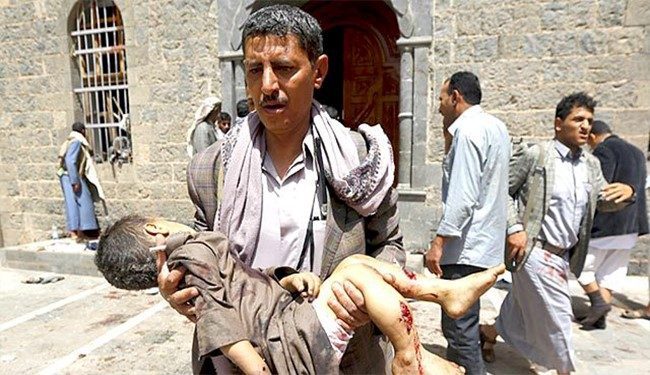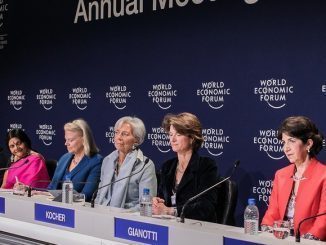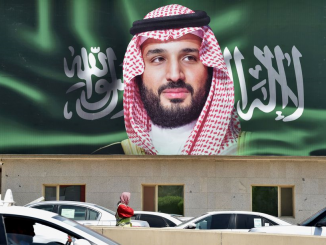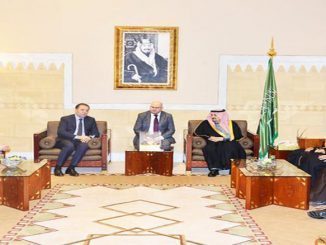
U.N. Secretary-General Ban Ki-Moon accused Saudi Arabia and its military allies of placing “undue pressure” on the international organization to remove it from UN blacklist for crimes agaisnt children.
The Saudi Arabia’s coalition began a military campaign against Houthi militias in March 2015. It sides with the President Abd Rabbuh Mansur Hadi, while the Houthis are aligned with ousted President Ali Abdullah Saleh, who was ousted after Yemen revolution in 2012. The conflict has left nearly 4,300 dead since March, half of them civilians, according to UN figures.
The U.N. report on children and armed conflict – released last Thursday – said the coalition was responsible for 60 percent of child deaths and injuries in Yemen last year, killing 510 and wounding 667, and half the attacks on schools and hospitals.
The Saudis applied full court pressure with a threat to cut off ties with the U.N. if the organization did not remove the country from a blacklist of groups violating children’s rights in the conflict in Yemen.The U.N. source said that a threat of a “total rupture” had been made, placing hundreds of millions of dollars to U.N. humanitarian agencies in doubt.
Last month, the Saudi-led coalition was put on a blacklist over its role in the deaths of children in Yemen. The U.N. report, which annually shames the worst perpetrators, claimed that the coalition was responsible for 60% of the 1,953 children recorded as killed or maimed in the conflict in 2015.
Saudi Arabia’s U.N. ambassador Abdallah al-Mouallimi dismissed those allegations as “rumors” circulated by people who “try to damage our reputation.”
Read more: Saudi Arabia removed from UN blacklist for crimes against children
One of the most painful decisions
In a press conference, Ban called his decision to remove Saudi Arabia from the blacklist as “one of the most painful and difficult decisions I have had to make.”
The U.N. leader attributed his decision to the repercussions it would have on other U.N. programs.
“I also had to consider the very real prospect that millions of other children would suffer grievously if, as was suggested to me, countries would de-fund many U.N. programs. Children already at risk in Palestine, South Sudan, Syria, Yemen and so many other places would fall further into despair.
“There are so many, so many much more serious issues. Because of this, you cannot burn down whole house.”
Al-Mouallimi disputed Ban’s comments, calling them “outrageous.” He denied any talks with the U.N. about de-funding its humanitarian agencies.
“This is so ridiculous. Why would we punish Palestinian refugees for a mistake committed by U.N. Secretariat? Why would we punish our brothers and sisters in refugee camps?”
Al-Mouallimi stressed that it was Saudi Arabia that was “bullied and threatened” by the inclusion of the country on the U.N. blacklist.
Saudi Arabia said the de-listing is final, irreversible and unconditional. Meanwhile, Ban characterized the removal of Saudia Arabia from the blacklist as temporary.
The Secretary-General said the facts in the report stand, though there will be a review.
Rights groups condemn
International human rights groups have raised concerns about Saudi airstrikes and accused the coalition of deliberately targeting civilians with cluster bombs, which would constitute a war crime. The British government has said it is urgently investigating allegations that UK-manufactured cluster bombs have been used.
Oxfam said the UN report on children and conflict was yet more evidence that countries such as Britain and the US should halt “reckless” arms sales to all participants in the conflict.
Sajjad Mohamed Sajid, Oxfam’s country director in Yemen, said: “Political power and diplomatic clout have been allowed to trump the UN’s duty to expose those responsible for the killing and maiming of more than 1,000 of Yemen’s children.
“The killing of children in their homes, at schools and in hospitals should not be swept under the carpet. When the UN identifies crimes such as these it needs to act, regardless of who the perpetrators are.”
HRW’s deputy director for global advocacy, Philippe Bolopion, said: “After giving a similar pass to Israel last year, the UN secretary general’s office has hit a new low by capitulating to Saudi Arabia’s brazen pressure and taking the country off its just published list of shame. Yemen’s children deserve better.”
Richard Bennett, the head of Amnesty’s UN office, said: “This is a stark example of why the UN needs to stand up for human rights and its own principles – otherwise it will rapidly become part of the problem rather than the solution.”



